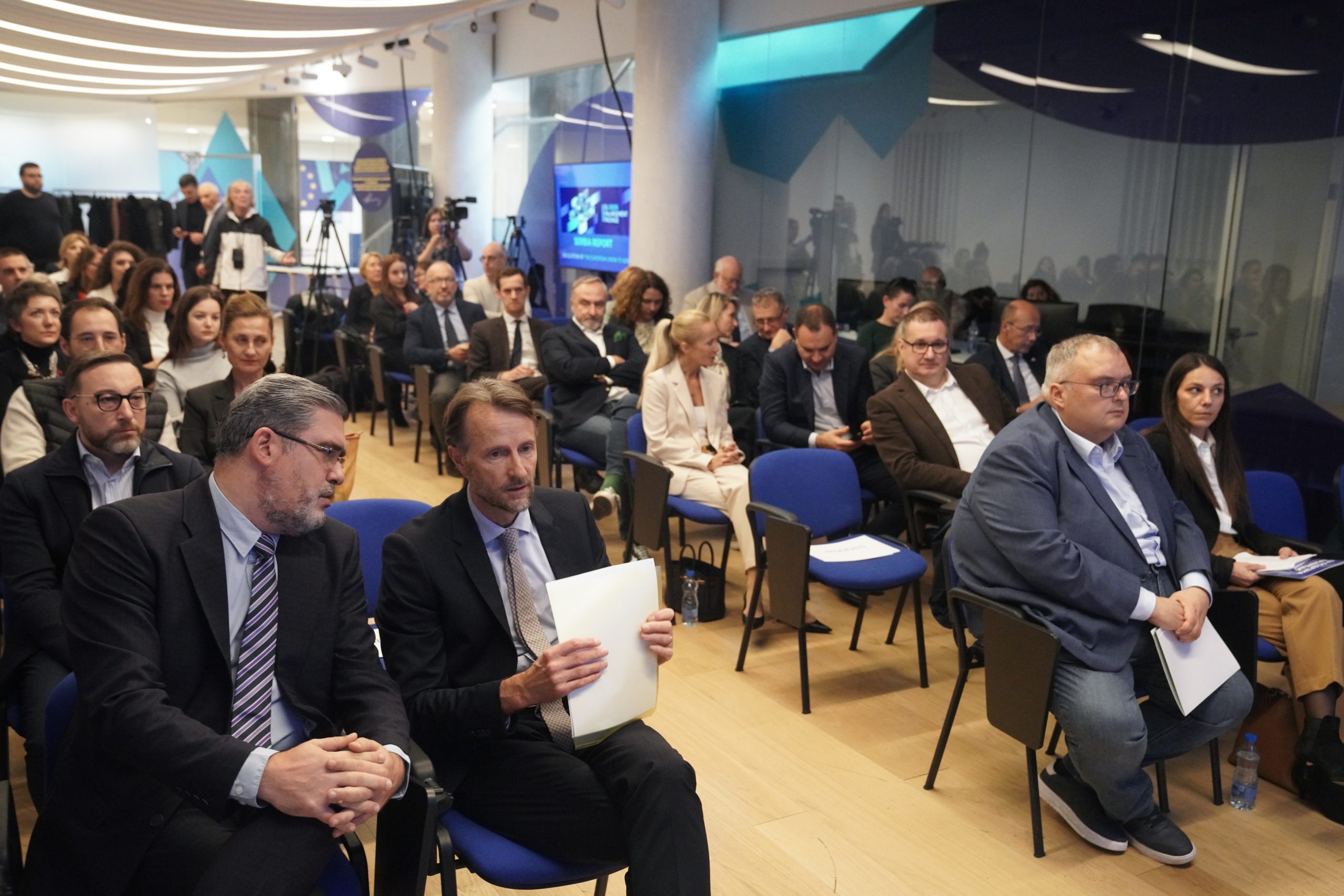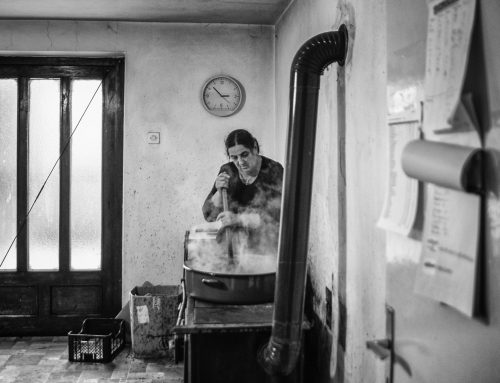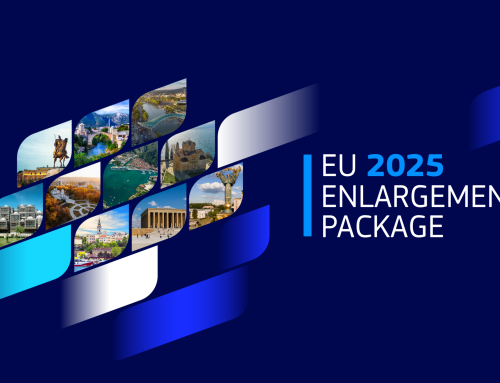The European Commission’s Annual Report on Serbia was presented to the business community on November 13 in Europe House, with the aim of analysing the economic elements and the impact of European integration on economic trends and business environment.
The EU Ambassador to Serbia, Andreas von Beckerath, highlighted the main findings of the Report and underlined the importance of fully implementing reforms, beyond mere adoption of legislation. He highlighted close economic integration of the Serbian economy with the EU single market.
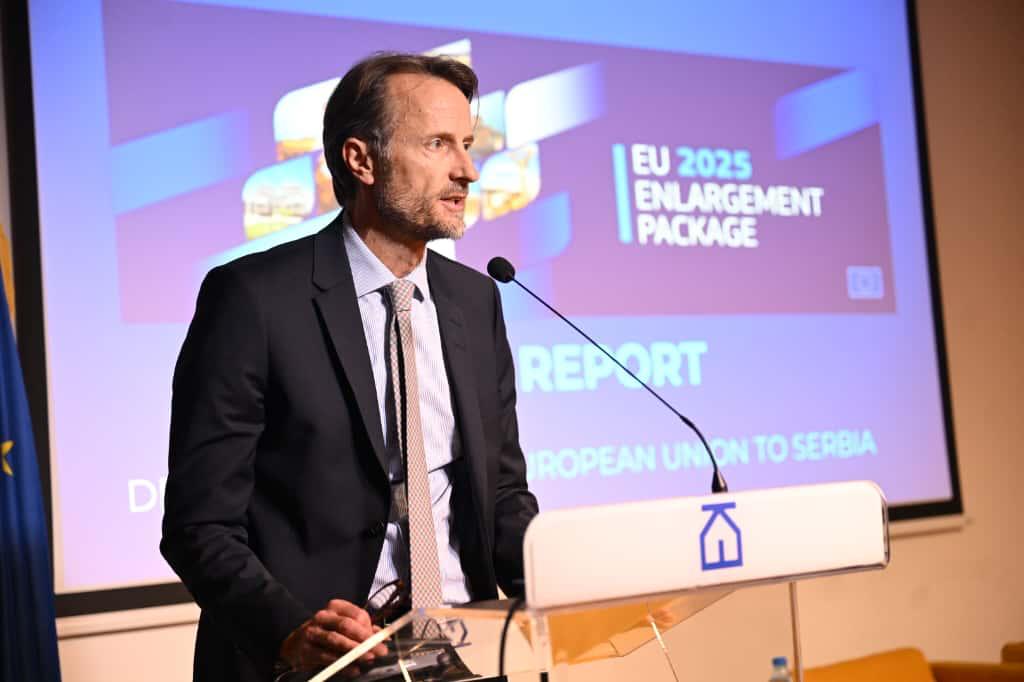
“EU companies are by far the largest foreign investors in Serbia, accounting for around 56 percent of foreign direct investments in the period from 2010 to 2024. This translates into an impressive total of EUR 24 billion of investments that have come from the EU over the past 15 years. As you know, the Growth Plan also offers a very powerful tool for Serbia, both for gradual integration into the single market and for gaining greater financial benefits, depending on how Serbia implements its reform agenda,” the Ambassador von Beckerath stated.
“The essence of the Report is to provide state institutions, but also other stakeholders, with what we consider to be a road map for accelerating reforms and making faster progress on the path towards EU membership,” concluded the Head of the EU Delegation to Serbia.
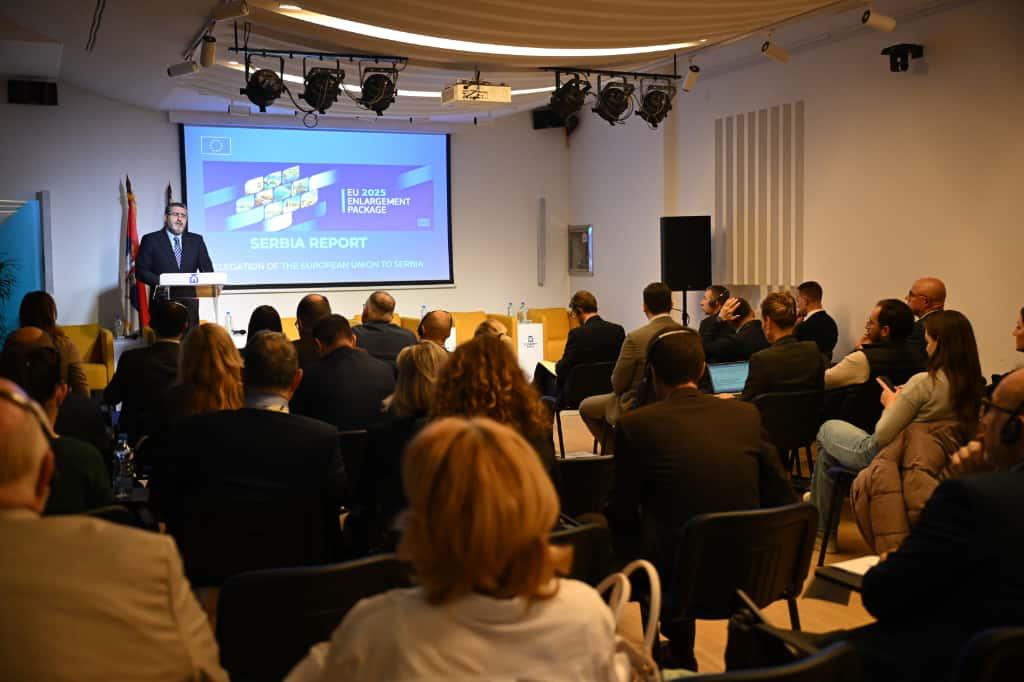
The Minister for European Integration, Nemanja Starović, noted that the European Commission’s Annual Report provides a comprehensive overview of the country’s progress on its path towards membership in the European Union, adding that Serbia does not view these findings merely as formal observations, but as a practical roadmap for concrete activities and reforms.
“Serbia remains firmly committed to its strategic goal, which is full membership in the European Union. Every measure is aimed at achieving tangible results, essentially meeting EU standards, and ensuring that the accession process reflects the real progress of our country. The European Commission serves not only as an instrument of assessment, but also as a good opportunity to reaffirm our commitment, strengthen partnerships and show tangible results in all areas of reform,” said Starović.

The details of the economic aspects of the Report were presented to interested participants by Pasquale De Micco, Head of European Integration and Economic Section at the EU Delegation to Serbia. He spoke about various social and economic factors that affect the day-to-day functioning of the Serbian economy in the context of the process of European integration and cooperation with the Union and its Member States.
Presentation is available here
After the opening speeches and presentations, a lively panel discussion titled “EU-Serbia sustainable supply chains in times of uncertainty: energy security, transport, logistics and trade facilitation” followed, with contributions from representatives of companies, chambers of commerce and EU institutions. You can find the recording of the entire event below.
Foto: Tanjug

